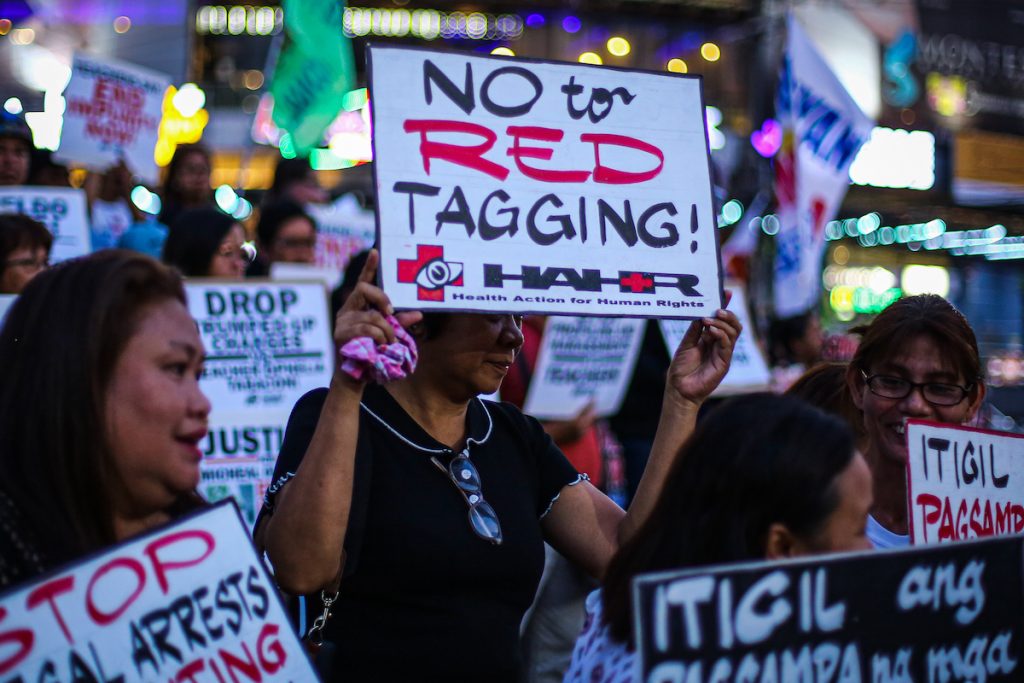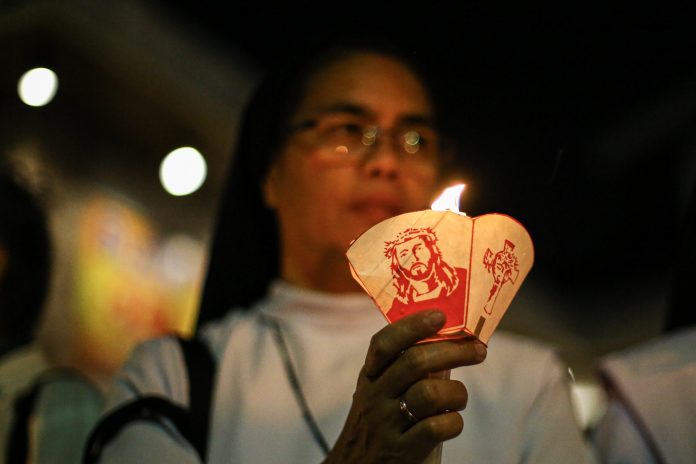Catholic Church leaders in the Philippines have expressed alarm over the spate of killings and the so-called red-tagging of activists, even of Catholic universities, in the country in recent weeks.
“It is becoming worrisome,” said Bishop Pablo Virgilio David of Kalookan, vice president of the Catholic bishops’ conference, during an online media briefing on January 28.
The prelate said the allegations “bring back to memory the time when we were under authoritarian rule” during the years of the Marcos dictatorship in the Seventies.
“I think there is reason for people to be afraid when that becomes a trend,” said Bishop David. “But we are in a democracy (and) in a healthy democracy, it is good to question policies.”
The alleged extrajudicial killings of tribal people and the tagging of Catholic universities as “breeding grounds of communists” were among issues raised during the bishops’ bi-annual meeting this week.
Bishop David said bishops from the central Philippines shared their pastoral statement condemning the killing of nine indigenous people on Panay island last month.
The bishops from Western Visayas region were pressing for an impartial probe into the killings amid allegations of human rights abuses.
“We expressed our solidarity with our brother bishops,” said Bishop David, adding that the killings seemed to be linked with the red-tagging activities.
The prelate said “fear about an exaggerated response to address terrorism that might compromise human rights” was the reason the Church leaders issued a statement on the new Anti-Terrorism Act.
In a pastoral letter released in July 2020, the bishops’ conference warned that the law might be used against those involved in social advocacies who had been accused of being communists.
The bishops said that the return of warrantless detention through the anti-terror law reminds of the initial actions of late dictator Ferdinand Marcos in 1972.
It said it was from the legalization of the arrest, search and seizure orders that the country gradually sank into authoritarian rule.
Bishop David dubbed as “ridiculous” allegations that several Catholic universities in the country have become “breeding grounds” of communists.
“It is ridiculous and we’re glad that these universities banded together and came up with a collective statement to question the red-tagging,” he said.

The National Task Force to End Local Communist Armed Conflict earlier identified schools that the military has tagged as hotbeds of recruitment for the Communist Party of the Philippines.
Among the schools listed are the Ateneo de Manila University of the Jesuits, the De La Salle University of the De La Salle Brothers, and the University of Santo Tomas of the Dominicans.
In a joint statement this week, the Ateneo de Manila University, University of Santo Tomas, the De La Salle University, and the non-sectarian Far Eastern University described the allegation as “irresponsible.”
The universities assured that they “value the Filipinos’ basic Constitutional rights of speech, thought, assembly, and organization.”
“We take as a sacred trust our primary responsibilities to promote learning and safeguard the rights of the young who are entrusted to our care,” the schools said.
“We are committed to this mission and have always held ourselves accountable to our primary constituents, the learners, and by extension, their parents,” they continued.
They also stressed the need to “retain independence and autonomy from the State and other social institutions.”









